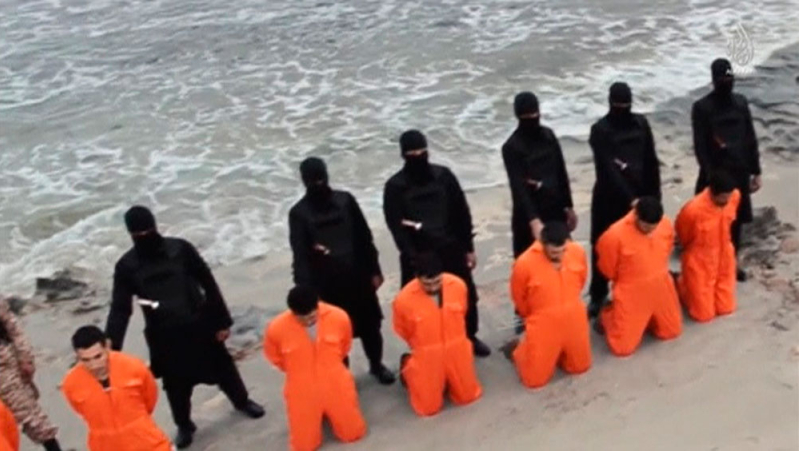
In light of the recent acts of terror and shocking destruction carried out by Islamic State militants around the world, many Christians struggle with the question: Should believers pray for ISIS to be converted or defeated?
Dr. Russell Moore, president of the Southern Baptist Convention's Ethics and Religious Liberty Commission, weighed in on the controversial issue in a lengthy post shared on the Gospel Coalition website.
Moore acknowledges that ISIS is undoubted "one of the clearest embodiments of persecution and evil that we in the West have seen in many years," citing the group's determination to wipe out anyone opposed to their particular brand of Islam.
"But is justice the only thing that Christians should pray for when it comes to ISIS? Or should we pray that...there would be a Saul among those ISIS militants, whose salvation might turn the Arab world upside down with the gospel?" Moore asks.
"The main problem is that we sometimes forget we are called to be a people of both justice and justification-and that these two aren't contradictory," he explains.
Moore charges that in light of ISIS' persecution of innocent people - including raping, enslaving, beheading and crucifying believers - and destruction of Christian churches and monasteries, it would be amiss not to pray for swift action against them.
"A world in which murderous gangs commit genocide without penalty is not a 'merciful' world but an unjust horror show," he explains. "As Christians we ought to be, above all people, concerned with such justice...We also have the personal implication. It's our household being wiped out in the Middle East, the very place where our church started. For us, this isn't a matter of 'they'; it's a matter of 'us.'"
However, it's also important to understand that praying for the salvation of our enemies is not a call to stop praying for justice against them, Moore writes.
"God's righteous condemnation of sin is there-he does not, and cannot, enable wickedness...The gospel doesn't leave sin unpunished. Every sin is punished-either at the Place of the Skull, in Christ, or in the judgment of hell, on one's own," he contends.
He cites the story of the repentant thief on the cross, who did did not believe his salvation exempted him from justice: "He confessed that his sentence was just, that he was receiving 'the due reward for [his] deeds' (Luke 23:41) even as he cried out to Jesus for merciful entrance into his kingdom (Luke 23:42)," Moore writes.
As "people of the cross," Christians ought to both pray for the gospel to go forward and for justice against those who perpetrate such unbelievable atrocities, he concludes.
"Praying for the military defeat of our enemies-and that they might turn to Christ-aren't contradictory prayers, because salvation doesn't mean turning an eye away from justice," he argues. "We can pray for gospel rootedness in the Middle East, and we can pray to light up their world like the Fourth of July, at the same time."
Another prominent evangelist, the Rev. Franklin Graham, has in the past shared similar thoughts on how Christians should respond to ISIS.
In a Facebook post shared in June, Graham, 64, called on Christians from all over the globe to continue praying for an end to the group's reign of terror in the Middle East and halt their planned expansion.
"Radical Islam has brought so much destruction and horror to so many lives," he said, citing in particular the ongoing "genocide of Christians."
However, during an appearance of On the Record with Greta van Susteren in February, Graham addressed ISIS directly.
"I would like to say something to them if they are watching," he said. "What they did was evil. What they did was wrong. It was a sin against God. I know they did this thinking they were pleasing god, but it doesn't. God loves you and God is willing to forgive you. But you've got be willing to confess your sin to Him and ask for His forgiveness."
"I think it's important that the Muslim world know that God does love them," Graham continued. "He has made a way for them to be with Him in heaven. That's through faith in His son Jesus Christ. They don't have to cut off heads, they don't have to die in a holy war."







